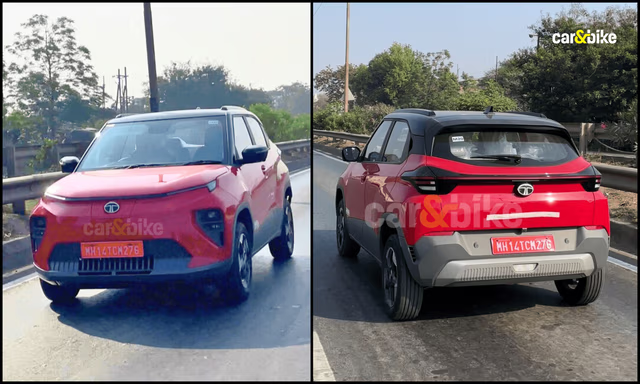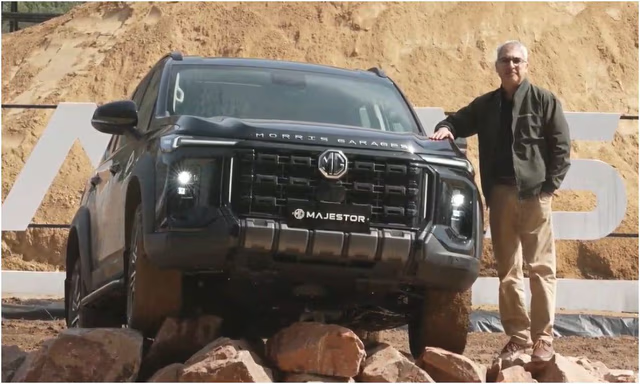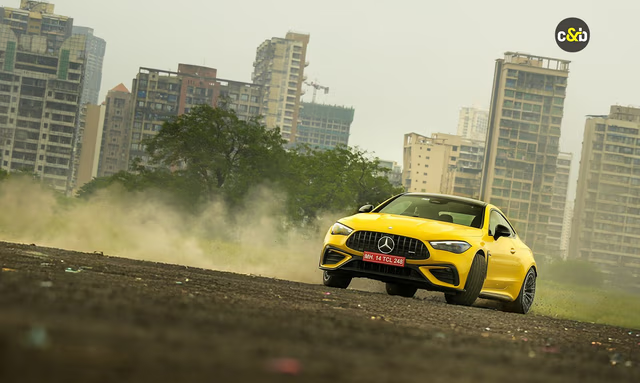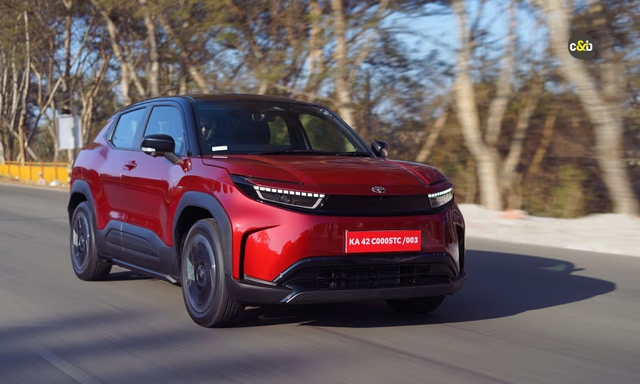Why Can't F1 Cars Refuel During a Race?

- Without the refuelling process, pitstop time has cut down to 2 to 3 secs.
- Refuelling amidst the race has several safety hazards
- Though the teams require clever strategies they manage without refuelling
The rules and regulations in Formula 1 racing do not allow the cars to refuel between the race. FIA decided to ban the refuelling process from enhancing the crew's safety and reducing costs.
Even though the teams require clever strategies and tactics to manage without refuelling, it is a critical safety step. Refuelling between the race has led to many mishaps and hazards in the past.
Refuelling Formula 1 Cars
According to Formula 1 Dictionary, FIA announced a ban on refuelling during pitstops in 2010. The drivers can opt for only a tire change during pit stops as per the change. This move might seem like a concerning tactic. But, the decision to ban refuelling in pit stops came after considering several safety hazards.

Photo Credit: in.pinterest.com
Why Refuelling is Banned
An avid Formula fan will know how switching between tires' hardness can impact the performance. Teams have to make strategic choices when they pick new tires to switch. Like the tires, the weight of a full fuel tank also affects the speed of the vehicles.
F1 cars started refuelling since the Australian GP 1982 when the Brabham team tried to start the race with a half-full tank. The refuelling was another strategy apart from the usual tire tactics. A few races were quite exciting, with refuelling being an option for drivers. There are two reasons why FIA banned refuelling in 2010:
To Reduce Cost
One reason why FIA decide to stop the refuelling process is to cut down costs. Regular people are unaware that storing, transporting, and caring for F1 car fuel is pretty expensive. The refuelling process required teams to carry more fuel. Owing to more requirements of fuel, the costs raised substantially. Refuelling for each team costs one million euros per year.

Photo Credit: www.espn.com
To Enhance Safety
The second reason refuelling was taken out of F1 is safety concerns. Refuelling amidst the race has several safety hazards. There was a risk of drivers pulling out of the pit too early with the fuel line still attached. Also, there was a high possibility of leakages.
Furthermore, F1 fuel is highly flammable and this combined with the heat emanating from the car and other machinery makes it a dangerous mix. There have been a few gruesome accidents related to pit refuels in the past. While Jos Verstappen made a pit stop in the 1994 German GP, the fuel hose spilt out the gas on the vehicle, leading to a fire.
Also, without the refuelling process, pitstop time has currently been cut down to only 2 to 3 seconds, making the process much faster.

Photo Credit: jalopnik.com
Furthermore, race officials must be able to withdraw 1L of fuel at the end of the race for potential investigative purposes to ensure all the rules are being followed. All this added weight of fuel does put increased pressure on tires and cause them to overheat quickly. This may cause drivers to be more cautious about overtaking during a race or go slower in general. However, despite these issues, it is quite improbable that F1 will bring refuelling back to races since it is now looking to become more sustainable and efficient, with lesser wastage, and eventually carbon neutral. This is why F1 cars had to switch from the spectacular sounding V8 and V10 engines to the current V6 Turbo Hybrid engines which are faster and also more efficient.
Latest News
 car&bike Team | Feb 14, 2026Vespa Officina 8 Launched At Rs 1.34 LakhThe Officina 8 takes inspiration from Piaggio’s historic experimental workshop in Pontedera, Italy.1 min read
car&bike Team | Feb 14, 2026Vespa Officina 8 Launched At Rs 1.34 LakhThe Officina 8 takes inspiration from Piaggio’s historic experimental workshop in Pontedera, Italy.1 min read Bilal Firfiray | Feb 12, 2026MG Majestor vs MG Gloster: What’s New, What’s Different?MG Majestor replaces the Gloster as MG’s new flagship SUV for 2026. Here’s a detailed comparison between the two.4 mins read
Bilal Firfiray | Feb 12, 2026MG Majestor vs MG Gloster: What’s New, What’s Different?MG Majestor replaces the Gloster as MG’s new flagship SUV for 2026. Here’s a detailed comparison between the two.4 mins read car&bike Team | Feb 12, 20262026 MG Majestor: Variants, Features, Specifications ExplainedThe Majestor will be offered in two key trim levels including Sharp and Savvy and in both two-wheel and four-wheel drive variants.2 mins read
car&bike Team | Feb 12, 20262026 MG Majestor: Variants, Features, Specifications ExplainedThe Majestor will be offered in two key trim levels including Sharp and Savvy and in both two-wheel and four-wheel drive variants.2 mins read car&bike Team | Feb 12, 20262026 MG Majestor SUV: In PicturesAlong with the new positioning, the SUV features a heavily updated design and styling; here’s a detailed look at it in pictures.1 min read
car&bike Team | Feb 12, 20262026 MG Majestor SUV: In PicturesAlong with the new positioning, the SUV features a heavily updated design and styling; here’s a detailed look at it in pictures.1 min read car&bike Team | Feb 12, 2026Tata Punch EV Facelift Spotted Ahead Of February 20 LaunchThe Punch EV facelift appears to be identical to the ICE counterpart.4 mins read
car&bike Team | Feb 12, 2026Tata Punch EV Facelift Spotted Ahead Of February 20 LaunchThe Punch EV facelift appears to be identical to the ICE counterpart.4 mins read Amaan Ahmed | Feb 12, 2026MG Majestor SUV Unveiled In India Ahead Of April 2026 LaunchReplacing the Gloster in the lineup, the Majestor will be the new MG flagship SUV in India, and deliveries will begin in the month of May.1 min read
Amaan Ahmed | Feb 12, 2026MG Majestor SUV Unveiled In India Ahead Of April 2026 LaunchReplacing the Gloster in the lineup, the Majestor will be the new MG flagship SUV in India, and deliveries will begin in the month of May.1 min read
 Bilal Firfiray | Feb 12, 2026BMW X3 30 xDrive M Sport Review: The Driver’s SUV ReturnsRange-toppingX3 30 xDrive M Sport brings back the fun with 255bhp and genuine enthusiast appeal. Does this performance-focused SUV stand out?5 mins read
Bilal Firfiray | Feb 12, 2026BMW X3 30 xDrive M Sport Review: The Driver’s SUV ReturnsRange-toppingX3 30 xDrive M Sport brings back the fun with 255bhp and genuine enthusiast appeal. Does this performance-focused SUV stand out?5 mins read Bilal Firfiray | Feb 11, 2026Mercedes-AMG CLE 53 Coupe Review: The Goldilocks AMG?The Mercedes-AMG CLE 53 Coupe is a concoction of hooliganistic performance and everyday usability. Here’s why this Rs 1.5 crore two-door AMG might be the perfect modern sports coupe for India.6 mins read
Bilal Firfiray | Feb 11, 2026Mercedes-AMG CLE 53 Coupe Review: The Goldilocks AMG?The Mercedes-AMG CLE 53 Coupe is a concoction of hooliganistic performance and everyday usability. Here’s why this Rs 1.5 crore two-door AMG might be the perfect modern sports coupe for India.6 mins read Girish Karkera | Feb 11, 2026Toyota Ebella EV Review: Compact And Fun-To-Drive With The Promise Of Stress-Free AftersalesNo hiding the fact that it is a clone of the Maruti Suzuki eVitara, but the first all-electric Toyota in India is reasonably well-rounded8 mins read
Girish Karkera | Feb 11, 2026Toyota Ebella EV Review: Compact And Fun-To-Drive With The Promise Of Stress-Free AftersalesNo hiding the fact that it is a clone of the Maruti Suzuki eVitara, but the first all-electric Toyota in India is reasonably well-rounded8 mins read Bilal Firfiray | Feb 10, 2026Tata Punch EV Long Term Review: Small EV With A Big-Hearted PersonalityWith the new Punch EV Facelift just around the corner, we decided to take a look at what it excels at and what could be improved.7 mins read
Bilal Firfiray | Feb 10, 2026Tata Punch EV Long Term Review: Small EV With A Big-Hearted PersonalityWith the new Punch EV Facelift just around the corner, we decided to take a look at what it excels at and what could be improved.7 mins read Bilal Firfiray | Feb 4, 2026Volkswagen Tayron R-Line Review: Sensible Flagship For IndiaVolkswagen has introduced a made-in-India flagship SUV that offers space, comfort, performance, and German driving finesse in a practical three-row package. But is the Tayron R-Line good enough?6 mins read
Bilal Firfiray | Feb 4, 2026Volkswagen Tayron R-Line Review: Sensible Flagship For IndiaVolkswagen has introduced a made-in-India flagship SUV that offers space, comfort, performance, and German driving finesse in a practical three-row package. But is the Tayron R-Line good enough?6 mins read




























































































































